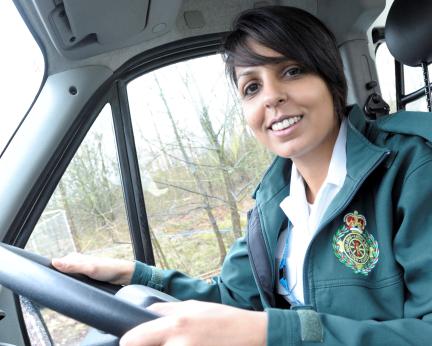Initially, when I first started, I was struggling because the shift pattern didn’t suit me. I try to eat and drink well when I am on shift, so I have the right energy levels to treat patients who are feeling poorly. This job can be quite physically and mentally draining, so I find it’s good to discuss cases with other colleagues and to do self-reflections for my personal and professional development.
I have recently started a Master’s degree in emergency resilience, planning and response at the University of Wolverhampton. I am constantly looking at ways to develop my role as a clinician as well as within leadership.
The advice I’d give to those who are keen on this role is: be prepared to put the work into studying and learning on the job, attend ambulance service or university open days and take opportunities to observe healthcare in action.





